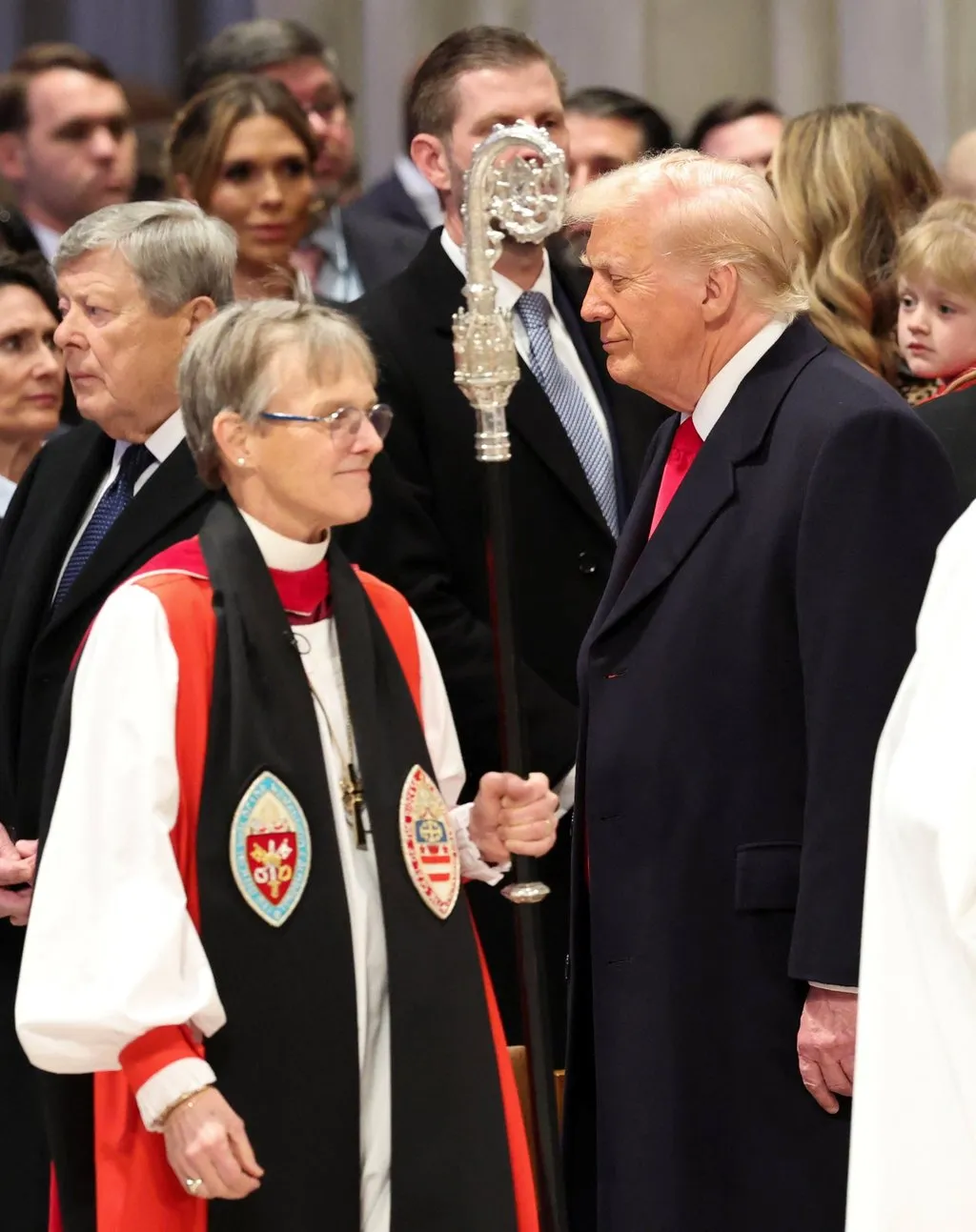Bishop Budde’s Bold Plea to Trump: A Call for Mercy That Shook the Nation
In a moment that would reverberate through the halls of political and religious discourse, Bishop Mariann Edgar Budde delivered a sermon that would become a defining statement of moral courage in the face of political tension. The Episcopal Bishop of Washington stood before a packed audience at a post-Inauguration prayer service, her words cutting through the charged atmosphere with a message of compassion and understanding.
A Sermon of Unprecedented Boldness
During the service, Budde made a direct and unprecedented plea to President Trump, urging him to show mercy towards two of the most vulnerable populations in American society: immigrants and LGBTQ+ individuals. Her sermon was more than just a religious address; it was a powerful call to humanity that would spark national conversation and controversy.
The Core of Her Message
The bishop’s message centered on several key points:
- Compassion over contempt
- Dignity for marginalized communities
- Respect for human rights
“Have mercy on the most vulnerable,” Budde implored, her words resonating with a profound sense of moral urgency.
A Nation Divided: Reactions and Repercussions
The response was immediate and polarizing. Trump, known for his combative approach, demanded an apology from Budde. However, the bishop remained resolute, refusing to back down from her principled stance. Her unwavering commitment became a symbol of resistance against what she perceived as a “culture of contempt.”
Public Support Emerges
In a remarkable show of solidarity, a petition supporting Budde quickly gained traction. Within days, over 30,000 signatures had been collected, with supporters describing her message as courageous and faith-filled.
The Broader Context
Budde’s sermon was more than a single moment of religious rhetoric. It represented a critical intersection of faith, politics, and social justice. She highlighted the profound fears faced by vulnerable populations, particularly immigrant communities and LGBTQ+ youth.
A Challenging Political Landscape
The incident laid bare the deep divisions within American society. Some of Trump’s allies criticized Budde harshly, with some even suggesting extreme measures against her. Yet, she remained committed to her core message of mutual respect and understanding.
Beyond the Controversy
In subsequent interviews, Budde emphasized her willingness to engage in dialogue with those who disagreed with her. Her approach was not about confrontation, but about opening channels of communication and promoting empathy.
A Pivotal Moment in Religious Leadership
Experts viewed Budde’s sermon as a watershed moment in the role of religious leaders in political discourse. She had effectively challenged the prevailing political rhetoric, advocating for:
- Dignity
- Honesty
- Humility
- Kindness
The Lasting Impact
While the immediate aftermath was tumultuous, Budde’s sermon sparked a crucial national conversation about compassion, social justice, and the responsibilities of religious leadership in challenging times.
Conclusion: A Voice of Moral Clarity
Bishop Mariann Edgar Budde’s bold plea to President Trump transcended a single sermon. It became a powerful reminder of the potential for moral leadership to challenge, inspire, and ultimately transform public discourse.
Note: This article is a journalistic interpretation based on multiple sources and the provided background information.






Leave a Comment